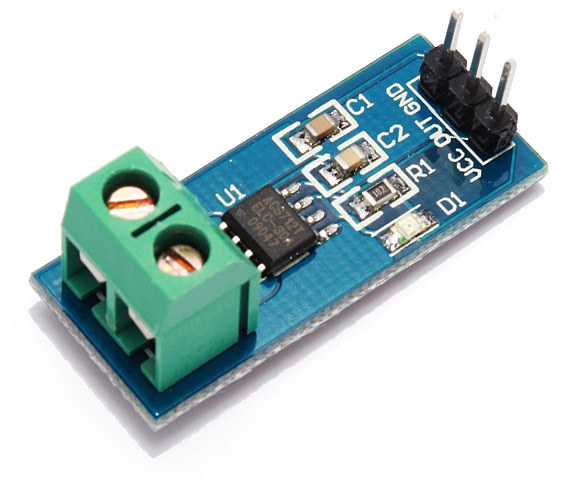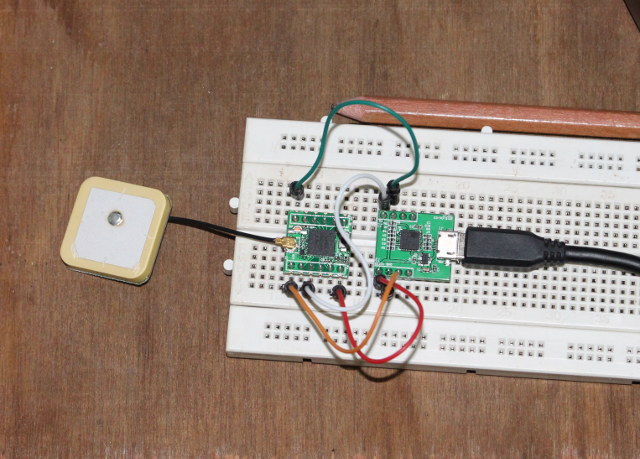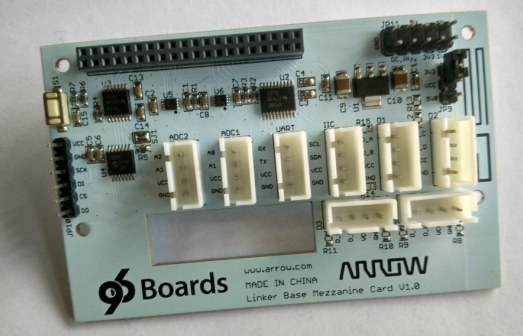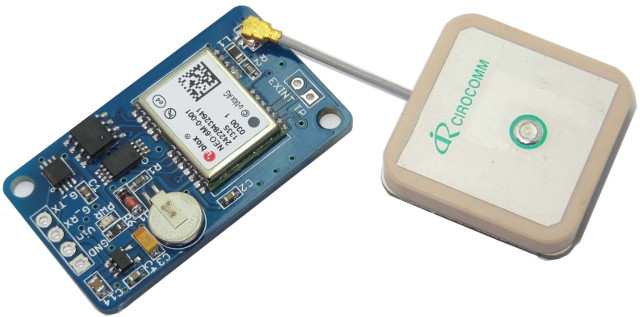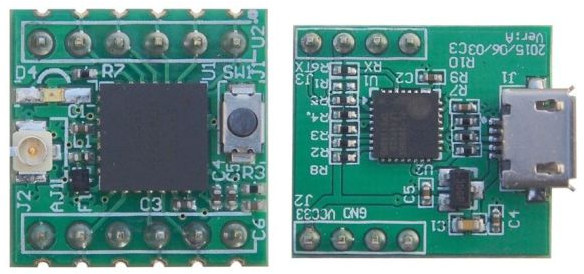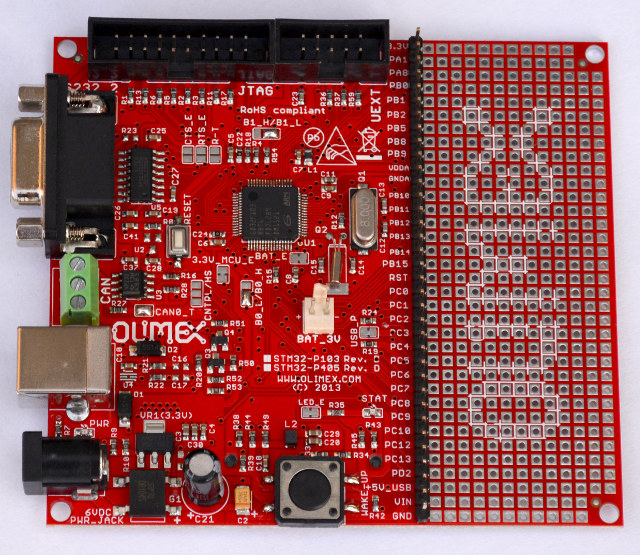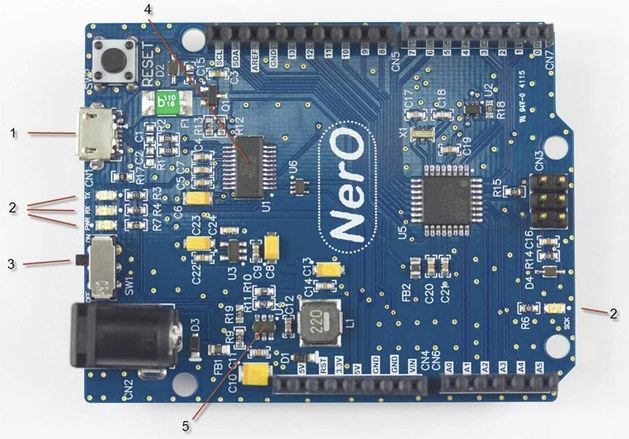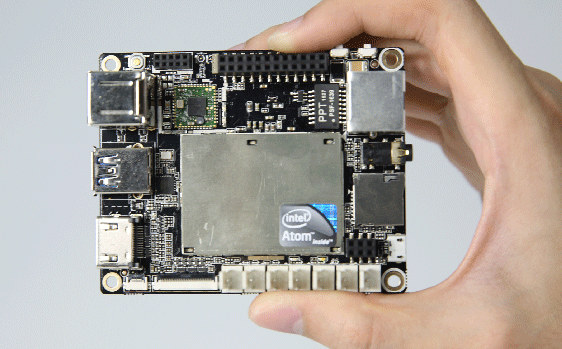Usually, if I buy a high power electric appliance, I like to double check it power consumption either with a Kill-a-watt when possible, and when not, e.g. cable directly hooked to the device or current intensity is too high, I use a digital electric clamp meter. Both methods are quite convenient as you don’t need to cut any wire to measure the current and determine the power consumption, but they don’t allow for data gathering since they don’t connect to the network. Earlier this week, I’ve come across a projects using ESP8266 for a mains energy monitor for a solar panel setup, and measuring mains current, electric meter, and gas meter. They use a photosensor to measure power consumption on their electric meter, which works, but may be problematic if the meter is on the street, and iSnail current sensor, using hall effect just like clamp meter, but instead of […]
Getting Started with NavSpark mini GPS Module
I noticed NavSpark mini GPS module a couple of weeks ago, and since it was free, not including $10 for shipping, I went ahead and ordered. Since the freebie got popular, SkyTraq took some time to ship it, and when they did they provide a “not trackable” tracking number, which I’m not sure what that means as I could track the parcel from Taiwan to Thailand using 17track website without issues. The packages included NavSpark mini and a USB to TTL module as described, so I insert both and connect VCC, GND, and UART as shown on the pictures on the product page. I also connected the GPS antenna from LinkIt ONE development kit to the uFL connector on NavSpark mini, as well as a micro USB to USB cable to my computer. If you don’t have such antenna, you’ll need to add the $9 GPS/GLONASS antenna on NavSpark website […]
96Boards Mezzanine Add-on Boards with Sensors, Buttons, Relays, etc.. Are Starting to Show Up
Beside excellent software support, and a great community, the two most popular maker boards on the market, namely Arduino and Raspberry Pi, also have many add-on boards, respectively called Shields and Hats, to expand their user and connect sensors, buttons, displays, and so on… Several Linaro’s 96Boards compliant development board launched last year such as LeMaker Hikey and DragonBoard 410c with support for recent versions of Android and Debian, and recently three Mezzanine add-ons boards, as well as somewhat pricey USB to TLL debug board, have started to show up to make it an even more interesting platform. Linker mezzanine card starter kit for 96Boards The first kit is made by LinkSprite and includes Linker Base Mezzanine Card with several sensors and cables. Eight 4-pin connectors with ADC, UART, I2C, and GPIOs allow you connect the eight sensors ad modules provided with the kit:a button module, a red LED module, […]
Ublox NEO-6M $10 GPS Module with Antenna Works with Arduino, Raspberry Pi, etc..
Last week, I wrote about NavSpark Mini a $6 GPS + Beidou module, that’s also available for “free” plus $10 shipping. However, if you don’t have an antenna, you’d also need to add a $9 antenna, bringing the total price to $19 for this low cost GPS solution. But there’s actually a cheaper alternative with Ublox NEO-6M GPS module, as it sells for $10 with a GPS antenna including shipping on either Aliexpress or eBay. Ublox NEO-6M based GPS module specifications: NEO-6M-0-001 module Storage – EEPROM for configuration data External interfaces – UART; default baudrate: 9600 bps Misc – RTC battery (MS621FE) Power Supply – 3 to 5V The battery may not always be included due to transport regulations, so you may have to purchase it separately and solder it yourself. The module is not exactly new, and has been around at least since 2013, so there’s also some documentation, […]
NavSpark mini is a $6 Arduino Compatible GPS Board
One person asked me whether any of the low cost boards in my Raspberry Pi Zero vs CHIP vs Orange Pi One comparison post came with GPS, and the answer is not without some external hardware. The only low cost boards with GPS I could think of were LinkIt ONE and NavSpark. I wrote about the latter over 2 years ago when the board launched via a crowdfunding campaign, so I went to the update page to find out more about the current status, and found two updates made in the last 6 months, including one about Navspark mini, a tiny board with GPS support, removing the USB port and having fewer I/Os compared to its older brother. NavSpark mini specifications: MCU – Skytraq Venus828F 32bit LEON3 Sparc-V8 MCU @ 100MHz with IEEE-754 Compliant Floating Point Unit, 1024KB Flash Memory, and 212KB RAM GPS 167 channel Venus 8 engine Uses […]
GigaDevice GD32 is a Faster, Software and Pin-to-pin STM32 Compatible Cortex M3 MCU
Las month, Olimex discovered a Chinese company called GigaDevice has made an STM32 clone called GD32 and compatible with STM32F103, but with higher core frequency (108MHz). Olimex has now posted an update after receiving a letter from GigaDevice, and trying GD32F103RBT6 MCU on their own STM32F103 boards. The company explained that GD32 was their own implementation, and claimed rights on GD32 trademarks, while Olimex discovered than GD32 was working just fine on their board having passed “all functional tests without any modifications”, and with all the same development tools and software code running fine. GD32F103xx datasheet (PDF / English version) can be downloaded to find a few more details: The GD32F103xx device incorporates the ARM Cortex-M3 32-bit processor core operating at 108 MHz frequency with Flash accesses zero wait states to obtain maximum efficiency. It provides up to 3 MB on-chip Flash memory and up to 96 KB SRAM memory. […]
FTDI NerO is an Energy Efficient Arduino UNO Compatible Board That Can Handle Higher Loads (Crowdfunding)
FTDI found out that the original Arduino UNO R3 boards had issues handling higher loads with 9V and 12V power input being limited to about 800mA and 300mA respectively before the voltage of the 5V regulator drops, so they decided to make their own supporting up to 1A. NerO board specifications: MCU – Atmel ATMega328 MCU @ 16MHz with Optiboot bootloader I/Os 14 Digital I/O Pins including 6 PWM outputs 6 Analog Inputs USB – micro USB port for programming using FTDI FT231XS USB UART interface (4) Misc – Status and PWR LEDs, on/off switch Power Supply – 7V to 20V ( 9V or 12V recommended ) via power barrel or VIN pin. 5V switching regulator. Dimensions – UNO R3 form factor FCC/CE certified The board is manufactured in Europe by MikroElektronika, a company which I started the hear about more and more, especially since they’ve launched their mikroBUS standard […]
LattePanda is a $79 Arduino Compatible Intel Atom x5 Board Running Windows 10 (Crowdfunding)
I feel like I’m living in another world after writing a title combining Arduino, Intel and Windows 10, but that’s exactly what LattePanda is promising with a development board featuring both an Intel Atom x5-Z8300 processor and an Atmel AVR MCU, and Windows 10 as the operating system. LattePanda board specifications: SoC – Intel Atom x5-Z8300 “Cherry Trail” quad core processor @ 1.44 GHz (Burst frequency: 1.84 GHz) with Intel Gen8 HD graphics @ 500 MHz System Memory – 2 to 4 GB DDR3L Storage – 32 or 64 GB eMMC, micro SD slot MCU – Atmel Atmega32u4 micro-controller Video Output / Display – HDMI, and MIPID DSI connector Audio I/O – HDMI, 3.5mm audio port Connectivity – Ethernet, WiFi and Bluetooth 4.0 USB – 1x USB 3.0 port, 2x USB 2.0 host ports, 1x micro USB port for power Serial – 1x from Intel SoC, 1x from Atmel MCU […]


